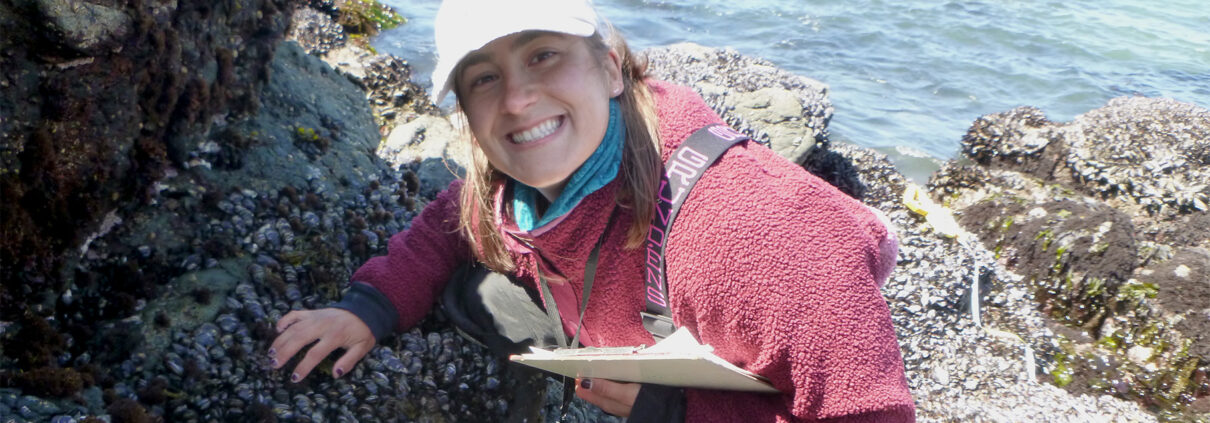I think my mom knew I was going to be in this science-policy space long before I did. As a little kid, I was super adamant about the recycling process, and I would get mad at my siblings who put it in the wrong bin. I don’t remember this, but my mom said she knew from the start. Growing up in Florida I spent a lot of time outside, on the beaches and in the mangroves. When it came to college and trying to figure out what I wanted to do with the rest of my life I knew it had to be something environmental, and probably marine science related. But for a single turning point, it may have been the internship I did at SeaWorld Discovery Cove – I was doing photography and videography, but seeing the dolphin trainers and getting all the fun facts from them I immediately switched my major from environmental engineering to marine biology. I got involved in a research lab that did oyster reef restoration and mangrove research and was absolutely hooked – I spent so much time counting oyster spats through a microscope I dreamed about them.
But at that point I still wasn’t sure what I wanted to do with it; I applied to a whole bunch of PhD programs to continue researching, as well as one Master’s of Biodiversity Conservation Management at Oxford. I ended up being accepted and deferring my PhD program a year because I felt that was something missing from my undergraduate education – we just didn’t have the policy or conservation coursework. I wanted to explore how all this research comes together to make an impact on our environment and our society and decisions we make as a whole. I found that to be the key.




